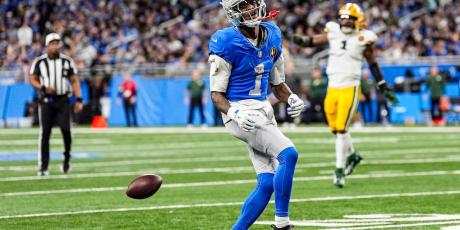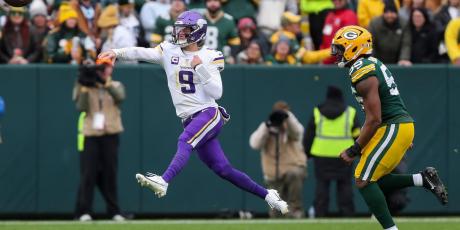Coach Tom Bass Answers More Questions

A great defense is playing a great offense. Who usually wins? Why? And, how can the Fantasy owner benefit?
Being a former defensive coordinator, I have to favor the defense. I think this has been demonstrated in past Super Bowls and Championship games.
The one exception to this basic observation is if the offense can find and exploit a match-up in the secondary. Some great defensive teams can successfully be attacked by featuring a third or fourth receiver who has greater skills than the nickel or dime back the defense puts on the field.
Base defense versus base offense I would still go with the defense.
What separates the NFL player from the guy that just misses making the team? What separates the NFL star from the average NFL player? Is it usually speed? Power? Training? Brains?
Most young players fail to make the squad because they do not understand the tremendous amount of work that must be done off the field. They think that their physical ability will ensure success.
The superstar in the NFL usually has greater physical ability. They may focus on off-season training a little more but usually they have the better tools coming into the game.
Once a player has been in the league for a number of years he will know the importance of becoming a student of the game. He will make certain that he has his own notebook with comments concerning all the opponents he has faced and what he has done to be successful versus a specific player and team.
Predicting the winner never hurts for fantasy football. Why is home field advantage worth three points and how can you tell ahead of time if it's going to be worth more or less?
As you have observed, home field is usually worth a three-point advantage.
Being at home and having the luxury of not having to travel are the only reasons that I have ever seen for this constant. Every time you travel as a squad you encounter distractions and disruptions from your normal weekly workout routine.
When you travel to other time zones to play this disruption becomes more pronounced. For younger players the surroundings of a new stadium can upset their mental preparation prior to the game.
I do believe that it can be greater when a dome team travels to play on grass outdoors. The game slows down. The elements now can become a factor in the kicking game and passing game if they are severe.
I read that the first game of the NFL season can really tell you a lot about a team's season. It sounds a little far fetched to me, but I saw data and it shows that since 1978, if you lose your opening day game, you only reach the NFL playoffs 23% of the time. It's hard to argue with the data. What do you think about this and how can fantasy owners work this to their advantage?
I know that statistics are important but I feel it is often more of a situation with what team you are opening with and where you are playing the game.
With only 12 teams making the playoffs, and as you noted 23% of the losing teams [four teams] making it to the championship round, I guess we could also state that 50% of the winning teams the first week will not make it to the next playoff round.
I think it may make more sense to try to determine the quality of the opponent and make your evaluation on a team's home opener rather than on an opening week performance.
I'm thinking about my keeper league. How much do NFL coaches talk about a player's age? If a running back is 32 years-old for example, do you coaches factor than into your game day or upcoming season plans? How so? What about a 28 year-old RB? When does age become a factor?
Age becomes a big consideration when it is factored in with injuries.
When a player is older and has been injury-free coaches will then look at the player's performance in trying to determine upcoming season plans.
The other big consideration is do you have anyone on the squad who can take his place and give the team the same opportunity to win.
When an older player's performance starts to go downhill and when injuries begin to pile up the coaches will definitely look at the age of the player and may begin to phase him out of their plans.
Running back is a position where you really need to closely evaluate a player every year. It is a position where you will find coaches trying to lessen the number of plays a RB make have during a season as he gets up in years, especially if he is a player who has taken a number of really hard shots during the previous seasons.
Check this year's NFL draft to give you a clue on how the coaches and personnel people feel about a running back for this season.
Sure NFL coaches want the best players on the field. Same with fantasy coaches. But do some coaches ever play favorites? Sometimes I think this happens to show who is boss and to "punish" jerk players. Also, you can't tell me coaches 100% ignore the fact a player is always getting in trouble off the field. Am I right?
There are some coaches who play favorites, but on a whole, once the season begins you learn to overlook the jerks and play the best players.
This is one of the hardest realities for a college coach to accept when first coming into the NFL. Recruiting skills are not a premium and the jerks do not graduate. You will start every season looking out at the squad and seeing a jerk or problem player smiling back at you until you can replace him with an equal or better player through the draft, free agency or trade.
The best time to replace a player like this is during the offseason. You do not want him around your team. Unfortunately once the season starts it may be too late unless some rookie comes along and you see that releasing the problem will not decrease your chances of winning.
I need help in picking which rookies will do well in the NFL. Coach, I understand you scouted players when you were a Vice President with the New England Patriots. I also understand you helped build the Bucs and the Bengals. I'm sure it was fun and hard work, with plenty of pressure. Did you have one special characteristic you always looked for in players?
We are all trying to draft good players and use the right players each week.
When I was scouting players there were three areas that were of utmost importance to me.
The first was actual performance. Potential was not something that I was looking for in a college player. I tried not to fall in love with a player and let previous knowledge overshadow my own evaluation of his suitability for the NFL.
Next was a player's toughness. He needed to be going from the snap until the whistle blew. I wanted him to play as hard in the fourth quarter as he did in the first regardless of the score. It was important that he demonstrated the ability to practice and play when he was banged up and sore.
Third was his mental ability to understand his assignments and the nuances of the game. It was important to know if he was only a visual learner that would necessitate special coaching and additional time.
If a player met all three criteria or at least two out of three then I would become interested in the measurable statistics that you see listed in the team's program.












